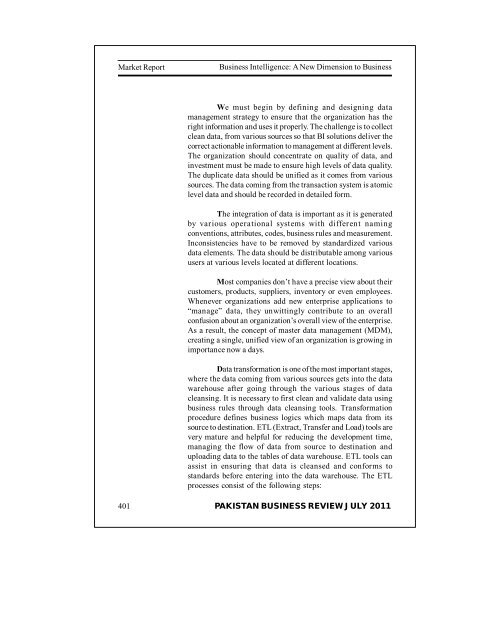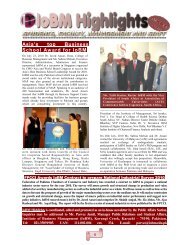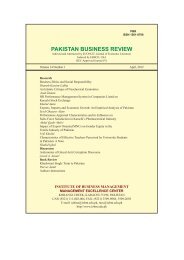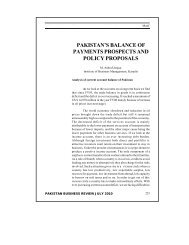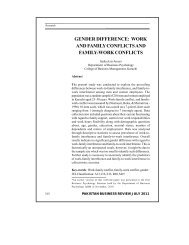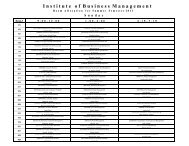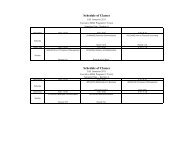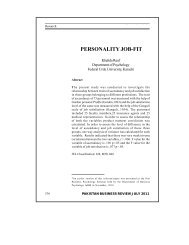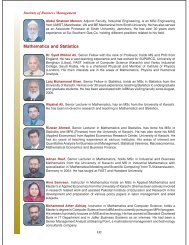PAKISTAN BUSINESS REVIEW - Institute of Business Management
PAKISTAN BUSINESS REVIEW - Institute of Business Management
PAKISTAN BUSINESS REVIEW - Institute of Business Management
You also want an ePaper? Increase the reach of your titles
YUMPU automatically turns print PDFs into web optimized ePapers that Google loves.
Market Report<br />
<strong>Business</strong> Intelligence: A New Dimension to <strong>Business</strong><br />
We must begin by defining and designing data<br />
management strategy to ensure that the organization has the<br />
right information and uses it properly. The challenge is to collect<br />
clean data, from various sources so that BI solutions deliver the<br />
correct actionable information to management at different levels.<br />
The organization should concentrate on quality <strong>of</strong> data, and<br />
investment must be made to ensure high levels <strong>of</strong> data quality.<br />
The duplicate data should be unified as it comes from various<br />
sources. The data coming from the transaction system is atomic<br />
level data and should be recorded in detailed form.<br />
The integration <strong>of</strong> data is important as it is generated<br />
by various operational systems with different naming<br />
conventions, attributes, codes, business rules and measurement.<br />
Inconsistencies have to be removed by standardized various<br />
data elements. The data should be distributable among various<br />
users at various levels located at different locations.<br />
Most companies don’t have a precise view about their<br />
customers, products, suppliers, inventory or even employees.<br />
Whenever organizations add new enterprise applications to<br />
“manage” data, they unwittingly contribute to an overall<br />
confusion about an organization’s overall view <strong>of</strong> the enterprise.<br />
As a result, the concept <strong>of</strong> master data management (MDM),<br />
creating a single, unified view <strong>of</strong> an organization is growing in<br />
importance now a days.<br />
Data transformation is one <strong>of</strong> the most important stages,<br />
where the data coming from various sources gets into the data<br />
warehouse after going through the various stages <strong>of</strong> data<br />
cleansing. It is necessary to first clean and validate data using<br />
business rules through data cleansing tools. Transformation<br />
procedure defines business logics which maps data from its<br />
source to destination. ETL (Extract, Transfer and Load) tools are<br />
very mature and helpful for reducing the development time,<br />
managing the flow <strong>of</strong> data from source to destination and<br />
uploading data to the tables <strong>of</strong> data warehouse. ETL tools can<br />
assist in ensuring that data is cleansed and conforms to<br />
standards before entering into the data warehouse. The ETL<br />
processes consist <strong>of</strong> the following steps:<br />
401<br />
<strong>PAKISTAN</strong> <strong>BUSINESS</strong> <strong>REVIEW</strong> JULY 2011


